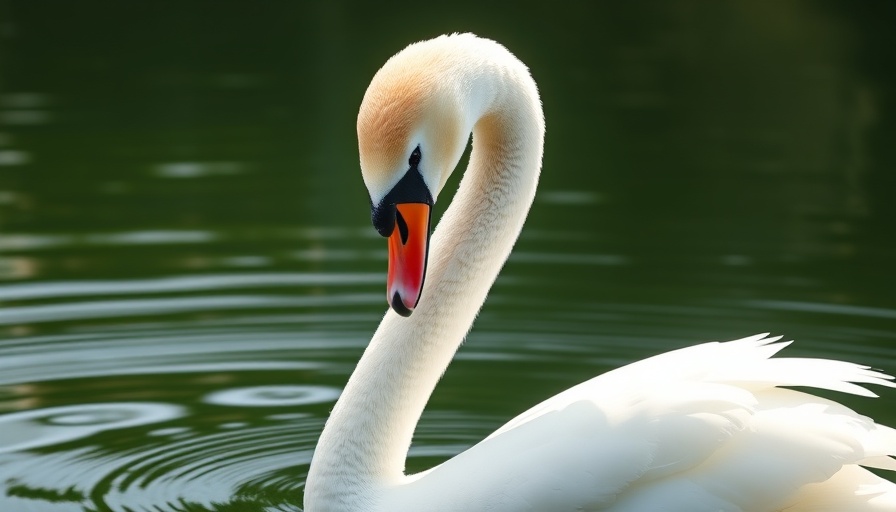
Unraveling the Legend of the Swan Song
The term "swan song" paints an evocative picture of beauty intertwined with melancholy—a final performance of sorts. The myth that swans sing an exquisite lament only at the point of death has roots that delve back into ancient storytelling. Philosophers like Plato and poets like Tennyson perpetuated this charming fallacy, but what do swans actually sound like?
The Reality of Swan Vocalizations
In actuality, swans, particularly the Mute Swan, possess a variety of vocalizations that encompass less melodious grunts and hisses rather than a symphonic farewell. As a winter flight of Tundra Swans passes overhead, what you may hear might best be described as a lively chorus that resembles music more than lament. These vocalizations create a wild music that contrasts sharply with the romanticized image that the "swan song" conveys.
Historical Roots of the Swan Legend
This myth connects to a time when the Greeks believed that swans were mostly mute animals, eschewing song for silence until their dying moments. Such tales have persisted through time, from Aesop's fables to Shakespeare's works. In "The Merchant of Venice," Portia notes the swan's supposed fate, illustrating how these creatures have long been symbolic within literature—a story of sorrowful beauty enduring through the ages.
Revisiting the Cultural Impact of the Myth
The idea of the swan's final song has not only captured literary minds but also sparked fascination in contemporary culture. It's a theme that resonates with anyone familiar with art and the beauty of nature, beckoning us to reflect on notions of mortality and legacy. While swans may not sing their goodbyes, they inspire us to celebrate life's bittersweet moments through their graceful presence.
Understanding Our Relationship with Nature
This concept also compels us to deeper introspection about how nature is perceived in human culture. The swan, with its striking elegance, serves as a reminder of the more profound connections we can foster with the environment surrounding us. Whether we interpret swan vocalizations as simple sounds or as a poetic reflection of life, they remind us of the complexity inherent in our natural world.
 Add Row
Add Row  Add
Add 




 Add Row
Add Row  Add
Add 

Write A Comment